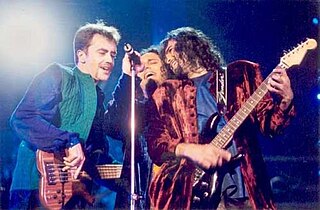
Junoon is a Pakistani sufi rock band from Lahore, Punjab, Pakistan, and Tappan, New York, formed in 1990. The band is directed by founder, lead guitarist and songwriter, Salman Ahmad, who was soon joined by keyboardist Nusrat Hussain, bass guitarist Brian O’Connell and vocalist Ali Azmat. Junoon is Pakistan's and one of South Asia's most successful bands. Since their inception, the group has released a total of nineteen albums: seven studio albums; one soundtrack; two live albums; four video albums; and five compilations. They have sold over 30 million records worldwide.

Azadi is the fourth studio album and the fifth overall album of the Pakistani sufi rock band, Junoon. The album was released in 1997 and established the Sufi rock sound that the band pioneered on their previous album, Inquilaab. The album was popular worldwide, bringing fame to Junoon.

Parvaaz is the fifth studio album and sixth overall album by the Pakistani band Junoon. It was released in 1999 and features songs mostly based on the poetry of the great Punjabi Sufi poet Bulleh Shah.

Ishq is the sixth studio album and the ninth overall album of the Pakistani sufi rock band, Junoon. The album was released on January 1, 2001 and was released by the title of Andaz outside Pakistan.
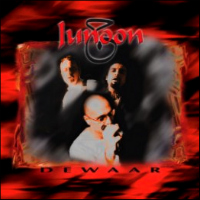
Dewaar is the seventh studio album and the thirteenth overall album of the Pakistani band, Junoon released in 2003. This was the last studio album released by the band after which both vocalist, Ali Azmat and bassist, Brian O'Connell, left the band.
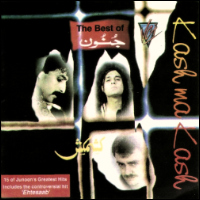
Kashmakash is the first compilation album and third overall album of the Pakistani rock band, Junoon. It is said to be the first compilation album by a pop band in Pakistan. Junoon was taken to court for the controversy generated by the video for "Ehtesaab", which included footage of a polo pony eating in a posh restaurant. Many thought the image was an indictment of the corrupt Pakistani political elite, and especially of former Prime Minister Benazir Bhutto. The government quickly banned the song and video from state television.

Junoon for Peace is the first live album and the eleventh overall album by the Pakistani band, Junoon. The album was recorded live on October 27, 2001.
"Jazba-e-Junoon" is a song by the Pakistani sufi rock band Junoon. It is the thirteenth and final track from the band's album third album, Inquilaab (1996), released on EMI Records. Written by Sabir Zafar and guitarist Salman Ahmad and it is the lead single on the album, the song uses blending of rock guitars and bluesy vocals with eastern elements like the use of tablas, raga-inspired melodies and traditional Pakistani folk music.

Dewaar: The Best of Junoon is the third compilation album and the fourteenth overall album released by Pakistani rock band, Junoon. The album is produced by the band vocalist and lead guitarist, Salman Ahmad.
"Ghoom Taana" is a song by Pakistani sufi rock band Junoon. It was released as the fifth and final single from their seventh full-length studio album, Dewaar. The single also featured in Salman Ahmad's debut solo album, Infiniti. The song was originally sung jointly by Ali Noor, vocalist of Noori, and Ali Azmat. However, the duet sung with Shubha Mudgal featured only Salman Ahmad for the male vocals. In 2016, a new rendition of the song featured in the band's eighth studio album, Door.
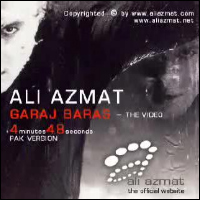
"Garaj Baras" is the seventh track on the 2003 album Dewaar by the sufi rock band Junoon. The song is written by the band's vocalist, Ali Azmat and lyricist, Sabir Zafar. The single was selected as part of a Bollywood movie soundtrack in 2003 for the film Paap directed by Pooja Bhatt. The song topped the charts in both India and Pakistan in 2004.
Inquilaab – The Story of Junoon is a 44-minute radio broadcast documentary presented by Omar Bilal Akhtar, broadcast on City FM 89, on March 13, 2009. The documentary explores the journey of the South Asian rock music band Junoon and the struggle they face to become one of the biggest band in the world.
"Talaash" is a song by the Pakistani sufi rock band Junoon. It is the seventh track and the only single released from the band's second album, Talaash (1993), released on EMI Records. Written by guitarist Salman Ahmad, it is the lead single on the album. The song uses blending of rock guitars and bluesy vocals with eastern elements like the use of tablas. It remains one of the band's most popular songs. In addition, the album version of the song featured in the compilation album, Kashmakash, released in 1995.
Heer" is an instrumental song by the Pakistani sufi rock band Junoon. The instrumental was first released on the band's self-titled debut album, Junoon released in 1991 and later in the fourth studio album, Azadi released in 1997. The instrumental is composed by the band's lead guitarist Salman Ahmad. The instrumental uses blending of rock guitars and bluesy vocals with eastern elements like the use of tablas, raga-inspired melodies and traditional Pakistani folk music.
"Saeein" is a song by Pakistani sufi rock band Junoon. It is Junoon's eleventh single and the second from the 1996 studio album Inquilaab. The song is written by lead guitarist, Salman Ahmad and lyricist, Sabir Zafar. Due to the song's popularity, it also featured on the band's fourth studio album Azadi released in 1997. "Saeein" is one of Junoon's most popular songs, and has been covered numerous times, most notably by Indian singer Harshdeep Kaur. The song marked Junoon's foray into what later became the sufi rock sound that the band is most popularly associated with. The song uses blending rock guitars and bluesy vocals with eastern elements like the use of tablas, raga-inspired melodies, traditional Pakistani folk music, and Eastern inspired poetry.
"Meri Awaz Suno" is a song by the Pakistani sufi rock band Junoon, released in 1995. It is the second track from the band's fourth album, Azadi (1997), released on EMI Records. The song was written by lead guitarist Salman Ahmad and writer Sabir Zafar. It remains one of the band's most popular songs.
Sayonee is a song by the Pakistani sufi rock band Junoon, released in April, 1997. It is the first track from the band's fourth album, Azadi (1997), released on EMI Records. Written by lead guitarist and founder of the band Salman Ahmad and writer Sabir Zafar, it is the lead single on the album, the song uses blends of rock guitars and bluesy vocals with traditional musical elements like the tabla percussion drums, Hindustani raga-inspired melodies styled and blended into Pakistani folk music.
"Yaar Bina" is a song by the Pakistani sufi rock band Junoon, released in April, 1997. It is the fourth track from the band's album fourth album, Azadi (1997), released on EMI Records. Written by lead guitarist and founder of the band Salman Ahmad and writer Sabir Zafar, it is one of the lead single's on the album, the other being "Sayonee", the song uses blending of rock guitars and bluesy vocals with eastern elements like the use of tablas, raga-inspired melodies and traditional Pakistani folk music.
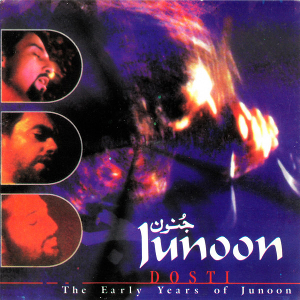
Dosti is the second compilation album and seventh overall album of the Pakistani rock band, Junoon. The album was released by Virgin Records India in 1998 and was produced by Brian O'Connell and Salman Ahmad. The album includes famous singles such as "Dosti", "Husan Walo", "Neend Athi Nahin" and "Chalay Thay Saath".










